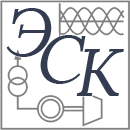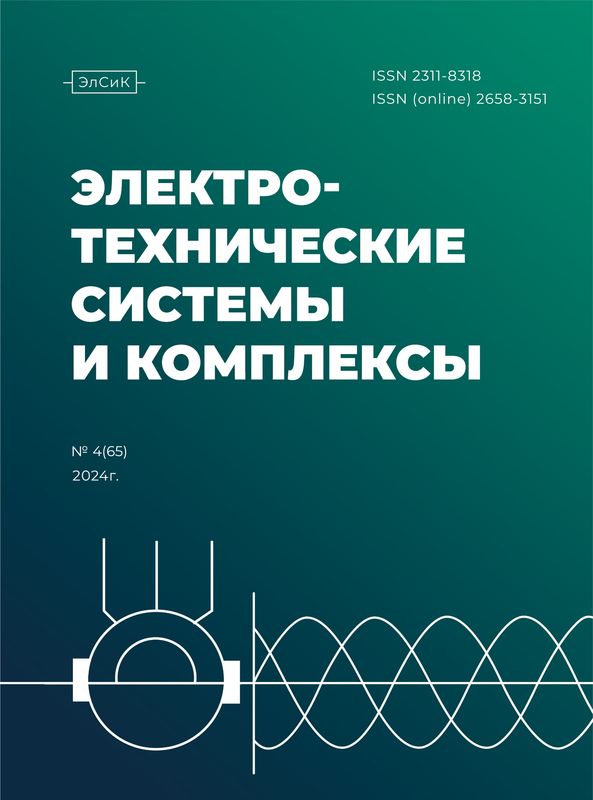Abstract
At present, bridge connection of power elements is widely used for bipolar control of stepping motors. The disadvantages of this solution include a low range of speeds achieved at the set load for the step drive, a wide amplitude of phase voltage ripple and, as a consequence, high dynamic losses in the semiconductor converter and the wide amplitude of ripple of the torque generated by the electric drive. The described disadvantages, as well as the high value of reactive power component consumed by a stepping motor at high shaft speeds, make it reasonable to include additional inverters (one inverter per each phase of the electric motor) into the common conversion system; these inverters are supposed to compensate the reactive energy consumed by the stepping motor. The aim of this research work is to investigate the possible application of the double inverter system in the electric drive based on a stepping motor and the synthesis of the vector control algorithm of the stepping motor adapted for operation with this kind of the converter. The performance check and the performance evaluation of the proposed inverter system as compared with the common bridge system were carried out using the comparative simulation method in the Matlab/Simulink graphical environment. The simulation modeling results point at loss reduction in the converting part by 30%, reduction of the amplitude of the generated torque ripple and the increase in the shaft speed range during electric drive operation when the double inverter system was used with a comparatively lower voltage in the DC link. The suggested operation algorithm provides voltage control in the DC links of the additional inverters to decrease the amplitude of the voltage ripple on the motor windings and to reduce the dynamic losses in the converter. This converter can be used in autonomous industrial objects, autonomous robotic systems, airspace systems, etc.
Keywords
Stepping motor, bridge converter, dual inverter system, autonomous voltage inverter, vector control, dual voltage inverters.
1. Derammelaere S., Vervisch B., Belie F.D., Cottyn B.V.J., Cox P., Abeele G.V.D., Stockman K., L. Vandevelde The efficiency of hybrid stepping motors: analyzing the impact of control algorithms. IEEE Industry Applications Magazine. 2014. Is. 4. Pp. 50-60, doi: 10.1109/MIAS.2013.2288403.
2. Le K.M., Hoang H.V., Jeon J.W. An advanced closed-loop control to improve the performance of hybrid stepper motor. IEEE Transactions on Power Electronics. 2016. Vol. 32. Is. 9. Pp. 7244-7255. doi: 10.1109/TPEL.2016.2623341.
3. Abuzyarov T.H., Plekhov A.S., Daryenkov A.B., Ermolaev A.I. Model development of a high-quality brushless direct current electric drive. Vestnik IGEU [Vestnik IGEU], 2020, no. 1, pp. 31-45. (In Russian) doi: 10.17588/2072-2672.2020.1.031-045.
4. Franquelo L.G., Rodriguez J., Leon J.I., Kouro S., Portillo R., Prats M.A.M. The age of multilevel converters arrives. IEEE Industrial Electronics Magazine. 2008. Vol. 2. No. 2. Pp. 28-39. doi: 10.1109/MIE.2008.923519.
5. Multilevel inverters: a survey of topologies, controls, and applications / J. Rodriguez, J.S. Lai, F.Z. Peng // IEEE Transactions on Industrial Electronics. 2002. Vol. 49. No. 4. Pp. 724-738. doi:10.1109/TIE.2002.801052.
6. Abuzyarov T.H. Simulation modeling of a dual converter for electric transport with space-vector control. Intellectualnaya elektrotekhnika [Smart Electrical Engineering], 2020, no. 3(11), pp. 100-109. (In Russian) doi: 10.46960/2658-6754_2020_3_100.
7. Abuzyarov T.H., Plekhov A.S. Cascade converter for electric transport with space-vector control. Materialy VI Vserossiyskoy nauchno-tekhnicheskoy konferentsii "Aktual'nye problemy elektroenergetiki" [Materials of the VI All-Russian Scientific and Technical Conference "Urgent Nizhny Novgorod State Technical University n.a. R.E. Alekseev Publ., 2020, pp. 56-63. (In Russian) doi: 10.46960/39255930_2020_41.
8. Oleschuk V.I., Sizov A.S., Stankovic A.M., Yaroshenko E.M. Dual inverter-fed drives with the synchronised multilevel voltage waveforms. Problems of the Regional Energetics. 2006. No.1. Pp. 106-119.
9. Kim J., Jung J., Nam K. Dual-inverter control strategy for high-speed operation of EV induction motors. IEEE Transactions on Industrial Electronics. 2004. Vol. 51. No. 2. Pp. 312-320. doi: 10.1109/TIE.2004.825232.
10. Graovac D., Marco P., Andreas K. MOSFET Power Losses Calculation Using the Data-Sheet Parameters. Infineon Technologies AG Publ., 2006. 22 p.










